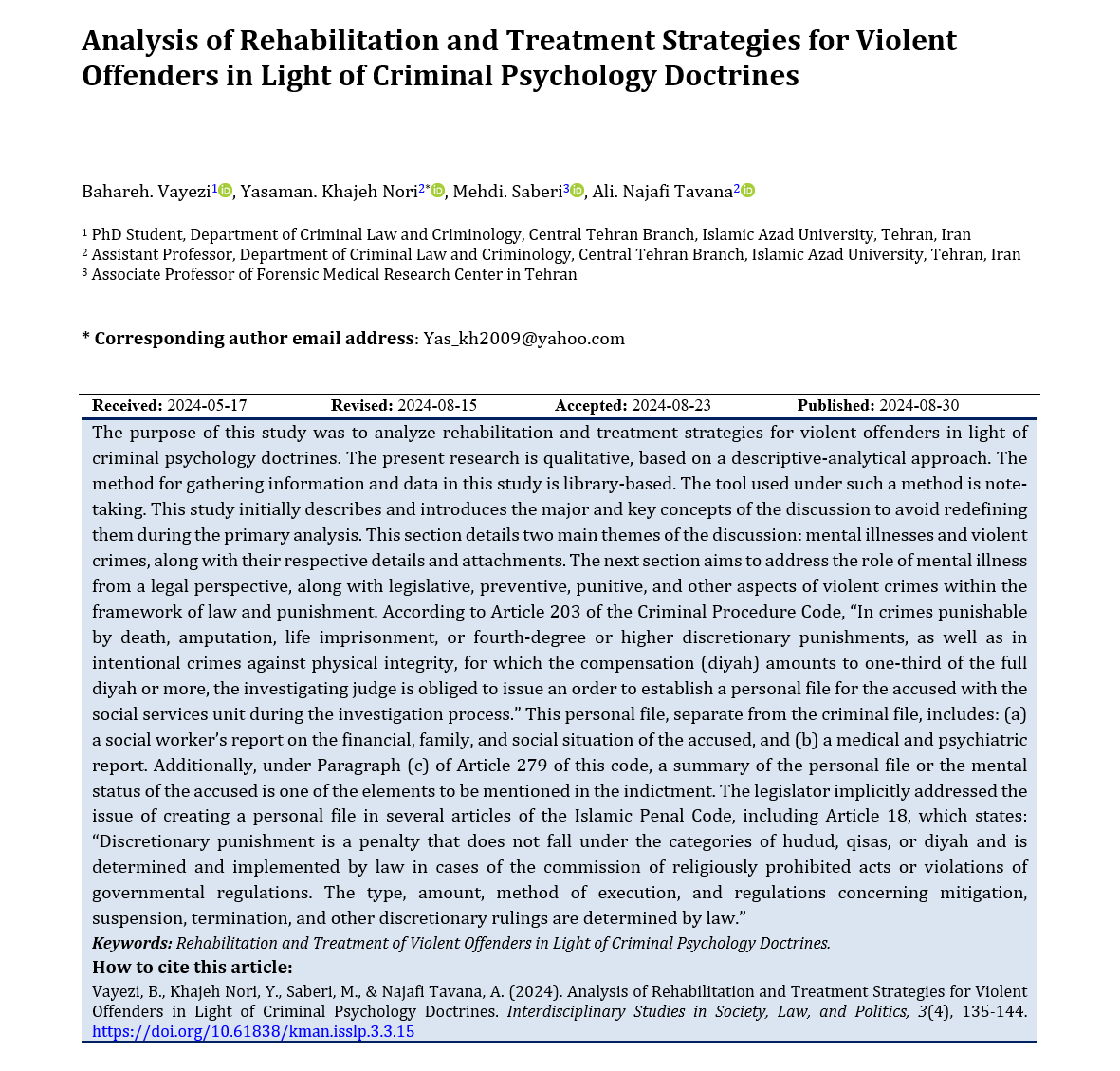Analysis of Rehabilitation and Treatment Strategies for Violent Offenders in Light of Criminal Psychology Doctrines
Keywords:
Rehabilitation and Treatment of Violent Offenders in Light of Criminal Psychology DoctrinesAbstract
The purpose of this study was to analyze rehabilitation and treatment strategies for violent offenders in light of criminal psychology doctrines. The present research is qualitative, based on a descriptive-analytical approach. The method for gathering information and data in this study is library-based. The tool used under such a method is note-taking. This study initially describes and introduces the major and key concepts of the discussion to avoid redefining them during the primary analysis. This section details two main themes of the discussion: mental illnesses and violent crimes, along with their respective details and attachments. The next section aims to address the role of mental illness from a legal perspective, along with legislative, preventive, punitive, and other aspects of violent crimes within the framework of law and punishment. According to Article 203 of the Criminal Procedure Code, “In crimes punishable by death, amputation, life imprisonment, or fourth-degree or higher discretionary punishments, as well as in intentional crimes against physical integrity, for which the compensation (diyah) amounts to one-third of the full diyah or more, the investigating judge is obliged to issue an order to establish a personal file for the accused with the social services unit during the investigation process.” This personal file, separate from the criminal file, includes: (a) a social worker’s report on the financial, family, and social situation of the accused, and (b) a medical and psychiatric report. Additionally, under Paragraph (c) of Article 279 of this code, a summary of the personal file or the mental status of the accused is one of the elements to be mentioned in the indictment. The legislator implicitly addressed the issue of creating a personal file in several articles of the Islamic Penal Code, including Article 18, which states: “Discretionary punishment is a penalty that does not fall under the categories of hudud, qisas, or diyah and is determined and implemented by law in cases of the commission of religiously prohibited acts or violations of governmental regulations. The type, amount, method of execution, and regulations concerning mitigation, suspension, termination, and other discretionary rulings are determined by law.”
Downloads






